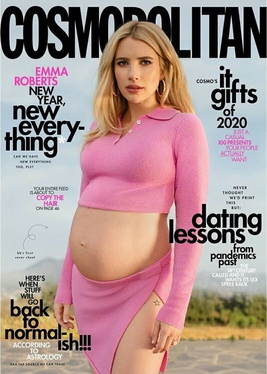Feminism is a range of socio-political movements and ideologies that aim to define and establish the political, economic, personal, and social equality of the sexes. Feminism holds the position that modern societies are patriarchal—they prioritize the male point of view—and that women are treated unjustly in these societies. Efforts to change this include fighting against gender stereotypes and improving educational, professional, and interpersonal opportunities and outcomes for women.

The sexual revolution, also known as the sexual liberation, was a social movement that challenged traditional codes of behavior related to sexuality and interpersonal relationships throughout the developed Western world from the 1960s to the 1970s. Sexual liberation included increased acceptance of sex outside of traditional heterosexual, monogamous relationships. The normalization of contraception and the pill, public nudity, pornography, premarital sex, homosexuality, masturbation, alternative forms of sexuality, and the legalization of abortion all followed.

Cosmopolitan is an American quarterly fashion and entertainment magazine for women, first published based in New York City in March 1886 as a family magazine; it was later transformed into a literary magazine and, since 1965, has become a women's magazine. Cosmopolitan is one of the best-selling magazines. Jessica Giles is the magazine's editor-in-chief since 2018.

Helen Gurley Brown was an American author, publisher, and businesswoman. She was the editor-in-chief of Cosmopolitan magazine for 32 years.
Second-wave feminism was a period of feminist activity that began in the early 1960s and lasted roughly two decades, ending with the feminist sex wars in the early 1980s and being replaced by third-wave feminism in the early 1990s. It occurred throughout the Western world and aimed to increase women's equality by building on the feminist gains of the late 19th and early 20th centuries.
Sex-positive feminism, also known as pro-sex feminism, sex-radical feminism, or sexually liberal feminism, is a feminist movement centering on the idea that sexual freedom is an essential component of women's freedom. They oppose legal or social efforts to control sexual activities between consenting adults, whether they are initiated by the government, other feminists, opponents of feminism, or any other institution. They embrace sexual minority groups, endorsing the value of coalition-building with marginalized groups. Sex-positive feminism is connected with the sex-positive movement. Sex-positive feminism brings together anti-censorship activists, LGBT activists, feminist scholars, producers of pornography and erotica, among others. Sex-positive feminists believe that prostitution can be a positive experience if workers are treated with respect, and agree that sex work should not be criminalized.
John Stoltenberg is an American author, activist, magazine editor, college lecturer, playwright, and theater reviewer who identifies his political perspective as radical feminist. For several years he has worked for DC Metro Theater Arts and as of 2019 is its executive editor. He has written three books, two collections of his essays and a novel. He was the life partner of Andrea Dworkin for 30 years and has lived with his husband, Joe Hamilton, for over 15 years.
Patrick Califia, formerly also known as Pat Califia and by the last name Califia-Rice, is an American writer of non-fiction essays about sexuality and of erotic fiction and poetry. Califia is a bisexual trans man. Prior to transitioning, Califia identified as a lesbian and wrote for many years a sex advice column for the gay men's leather magazine Drummer. His writings explore sexuality and gender identity, and have included lesbian erotica and works about BDSM subculture. Califia is a member of the third-wave feminism movement.
New feminism is a form of feminism that emphasizes the integral complementarity of women and men, rather than the superiority of men over women or women over men, and advocates for respecting persons from conception to natural death.
Sexualization is the emphasis of the sexual nature of a behavior or person. Sexualization is linked to sexual objectification, treating a person solely as an object of sexual desire. According to the American Psychological Association, sexualization occurs when "individuals are regarded as sex objects and evaluated in terms of their physical characteristics and sexiness." "In study after study, findings have indicated that women more often than men are portrayed in a sexual manner and are objectified. In addition, a narrow standard of physical beauty is heavily emphasized. These are the models of femininity presented for young girls to study and emulate."
The feminist sex wars, also known as the lesbian sex wars, sex wars or porn wars, are collective debates amongst feminists regarding a number of issues broadly relating to sexuality and sexual activity. Differences of opinion on matters of sexuality deeply polarized the feminist movement, particularly leading feminist thinkers, in the late 1970s and early 1980s and continue to influence debate amongst feminists to this day.

Sexual Politics is the debut book by American writer and activist Kate Millett, based on her PhD dissertation at Columbia University. It was published in 1970 by Doubleday. It is regarded as a classic of feminism and one of radical feminism's key texts, a formative piece in shaping the intentions of the second-wave feminist movement. In Sexual Politics, an explicit focus is placed on male dominance throughout prominent 20th century art and literature. According to Millett, western literature reflects patriarchal constructions and the heteronormativity of society. She argues that men have established power over women, but that this power is the result of social constructs rather than innate or biological qualities.

Letty Cottin Pogrebin is an American author, journalist, lecturer, and social activist. She is a founding editor of Ms. magazine, the author of twelve books, and was an editorial consultant for the TV special Free to Be... You and Me for which she earned an Emmy.

Human female sexuality encompasses a broad range of behaviors and processes, including female sexual identity and sexual behavior, the physiological, psychological, social, cultural, political, and spiritual or religious aspects of sexual activity. Various aspects and dimensions of female sexuality, as a part of human sexuality, have also been addressed by principles of ethics, morality, and theology. In almost any historical era and culture, the arts, including literary and visual arts, as well as popular culture, present a substantial portion of a given society's views on human sexuality, which includes both implicit (covert) and explicit (overt) aspects and manifestations of feminine sexuality and behavior.

Shira Tarrant is an American writer on gender politics, feminism, sexuality, pop culture, and masculinity. Tarrant's books include When Sex Became Gender, Men and Feminism, Men Speak Out: Views on Gender, Sex, and Power, Fashion Talks: Undressing the Power of Style, and the forthcoming New Views on Pornography. She is described as an "unconventional feminist" redefining gender rights, and is considered "a national leader in working with younger feminist men". She was identified in 2010 as an "extraordinarily accomplished thought leader" by the national Women's Media Center. In 2012, she was named a Glidden Visiting Professor at Ohio University.

Sex and the Single Girl is a 1964 American Technicolor comedy film directed by Richard Quine and starring Tony Curtis, Natalie Wood, Henry Fonda, Lauren Bacall and Mel Ferrer.
Feminism has affected culture in many ways, and has famously been theorized in relation to culture by Angela McRobbie, Laura Mulvey and others. Timothy Laurie and Jessica Kean have argued that "one of [feminism's] most important innovations has been to seriously examine the ways women receive popular culture, given that so much pop culture is made by and for men." This is reflected in a variety of forms, including literature, music, film and other screen cultures.
Heterodoxy was the name adopted by a feminist debating group in Greenwich Village, New York City, in the early 20th century. It was notable for providing a forum for the development of more radical conceptions of feminism than the suffrage and women's club movements of the time. The heterodoxy club was also known to be a space filled with people living remarkably diverse personal lives, allowing for women to congregate and talk about their experiences with one another in what was considered to be a safe space for conversation and change. The group was considered important in the origins of American feminism.
Neofeminism describes an emerging view of women as becoming empowered through the celebration of attributes perceived to be conventionally feminine, that is, it glorifies a womanly essence over claims to equality with men. It is a term that has come into use in the early 21st century to refer to a popular culture trend, what critics see as a type of "lipstick feminism" that confines women to stereotypical roles, while it erodes cultural freedoms women gained through the second-wave feminism of the 1960s and 1970s in particular.
Bernard J. Geis was an American editor and publisher who founded the now-defunct Bernard Geis Associates, which published and promoted several best-sellers in the 1960s and 70s, including Jacqueline Susann's Valley of the Dolls and Helen Gurley Brown's Sex and the Single Girl and David Wilkerson's The Cross and the Switchblade.








